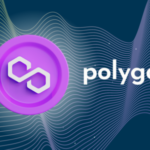I will discuss the Best Aggregator For Bridging Subscription Tokens, focusing on fast, secure, and economical cross-chain transfer technology.
If you are handling recurring payments or setting up a subscription based business, the right aggregator can make a world of difference. I will cover the major alternatives 1inch, Rango, and Synapse which streamline multi-blockchain token delivery.
Key Point & Best Aggregator For Bridging Subscription Tokens List
| Platform | Key Point |
|---|---|
| OpenOcean | Aggregates both DeFi and CeFi liquidity for optimized cross-chain trading. |
| Matcha | User-friendly DEX aggregator offering best prices from multiple sources. |
| ParaSwap | Advanced aggregator focused on slippage control and MEV protection. |
| Rango Exchange | Multi-chain DEX and bridge aggregator supporting complex cross-chain swaps. |
| Synapse Protocol | Cross-chain bridge with built-in AMM for asset swapping and interoperability. |
| Across Protocol | Fast, capital-efficient bridge for L2 and L1 transfers with minimal fees. |
| Stargate Finance | Omnichain liquidity protocol enabling native asset transfers across chains. |
| Allbridge | Simple cross-chain bridge supporting tokens and stablecoins between ecosystems. |
| Celer cBridge | Scalable cross-chain bridge offering fast and low-cost asset transfers. |
1.1inch
1inch is the most advanced aggregator for bridging subscription tokens because of its strong connection to several different automated market makers (AMMs) across multiple blockchains.
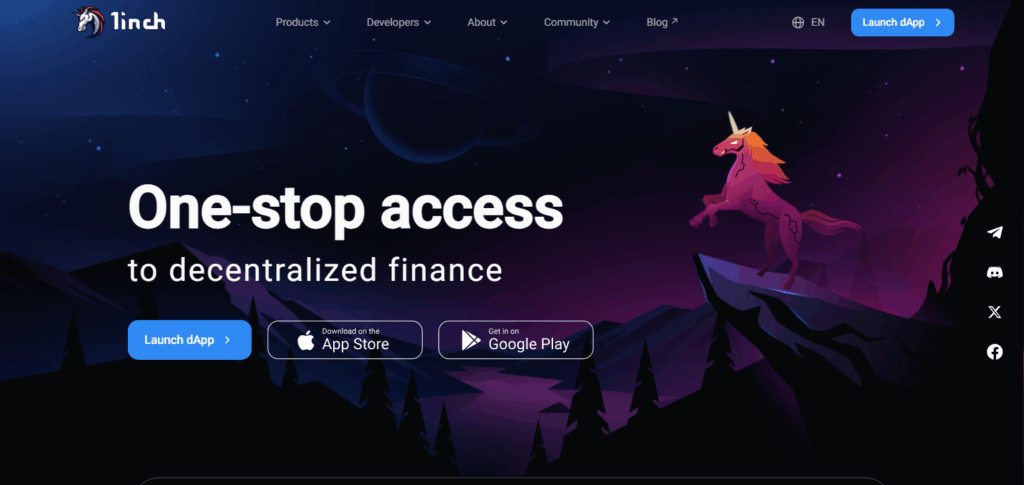
For subscription-based token transfers, 1inch’s algorithm optimally route transactions through the most efficient paths to reduce slippage and gas fees, both of which are crucial for recurring transfers.
With 1inch, each complex series of transactions is condensed into a single streamlined swap which guarantees reliable delivery and affordable pricing for recurring payments done periodically over multiple blockchains.
Pros & Cons
Pros:
Cons:
2.OpenOcean
OpenOcean is known as the best aggregator for bridging subscription tokens due to its unique combination of both centralized and decentralized exchange liquidity which offers unmatched flexibility and coverage.
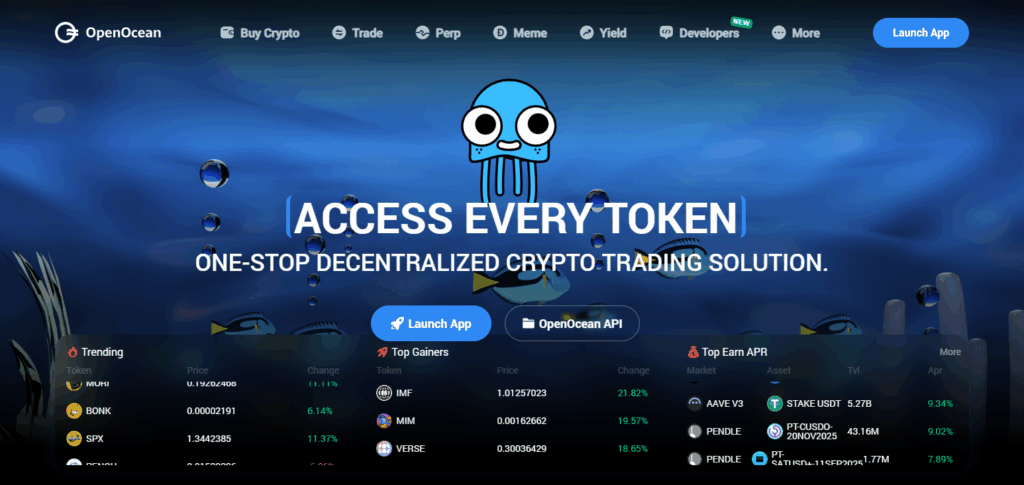
It’s cross-chain swap engine handles subscription tokens and guarantees prompt routing for cross-chain transfer, making it timely and inexpensive. OpenOcean’s unique advantage is its adaptive algorithm that selects the best routes for transferring tokens through multiple networks, including CeFi options during beneficial cases.
This guarantees reliable sustained execution of automated recurring payments in a subscription business model across different blockchains.
Pros & Cons
Pros:
Cons:
3.Matcha
Matcha stands out for bridging subscription tokens because of its excellent user flow and strong aggregation of decentralized liquidity. It auto-optimizes price fetching from several DEXs at gas fee-sparing levels, perfect for recurring subscription payments.
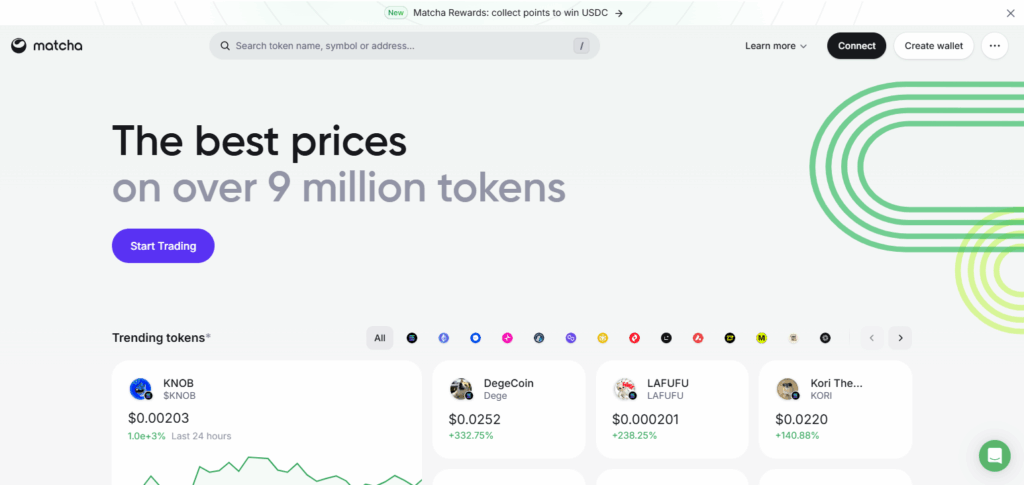
The strongest aspect of Matcha is its smart order routing, which allows users to automate cross-chain transfers without intricate configurations. This ensures that automation works with great precision for subscription services that provide seamless cross-chain token transfers.
Pros & Cons
Pros:
Cons:
4.Rango Exchange
Rango Exchange stands out as the optimal aggregator for bridging subscription tokens because of its sophisticated multi-chain interfacing capabilities and thorough connections with DEXs and bridges.
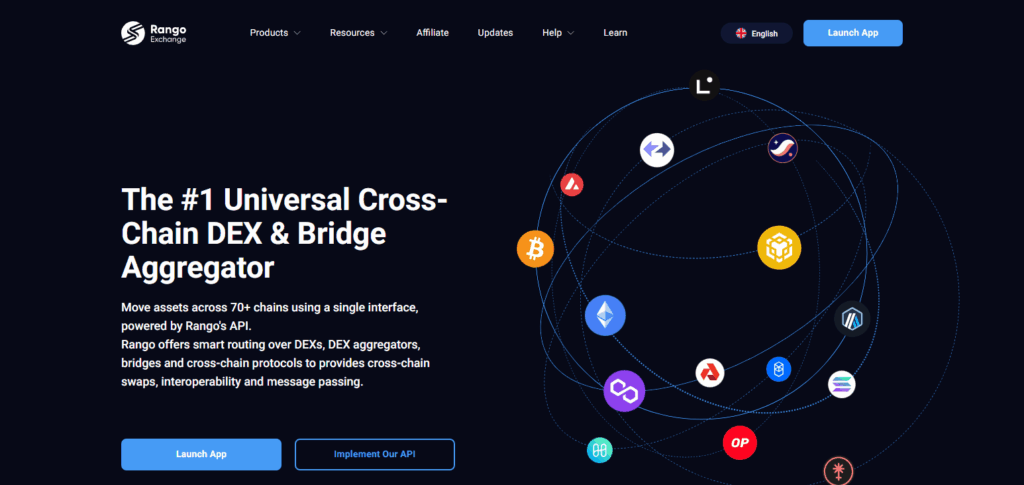
It handles automation of complicated recurring cross-chain token transfer routes exceptionally well. Rango’s remarkable feature is its single-window multi-route unified system configured to merge numerous, diverse paths and protocols into one transaction which minimizes failure rates.
This makes it particularly dependable as a subscription service where tokens need to be delivered across numerous blockchains consistently on a predetermined schedule.
Pros & Cons
Pros:
Cons:
5.Synapse Protocol
Synapse Protocol stands out as the leading aggregator for bridging subscription tokens because of its speed, security, and cross-chain functionality. It enables transfers of tokens between all major blockchains which is vital for prompt payment milestones within subscriptions.
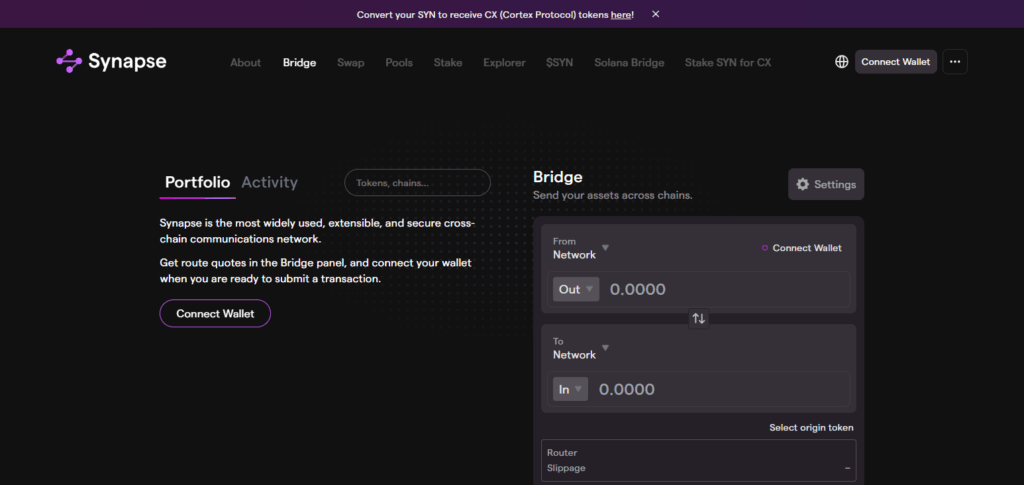
The differentiator for Synapse is the automated market maker, or AMM, that performs asset swaps at the time of bridging, meaning users do not have to convert tokens beforehand. This allows uninterrupted recurring delivery of tokens at minimal cost which is ideal for decentralized subscription services spanning multiple networks.
Pros & Cons
Pros:
Cons:
6.Across Protocol
Across Protocol is single handedly the best aggregator for bridging subscription tokens due to its speed, low fees, and reliability in cross-chain transfers. Its design purpose is to bridge move tokens between Ethereum networks and Layer 2 networks, making it very suitable for recurring payments.
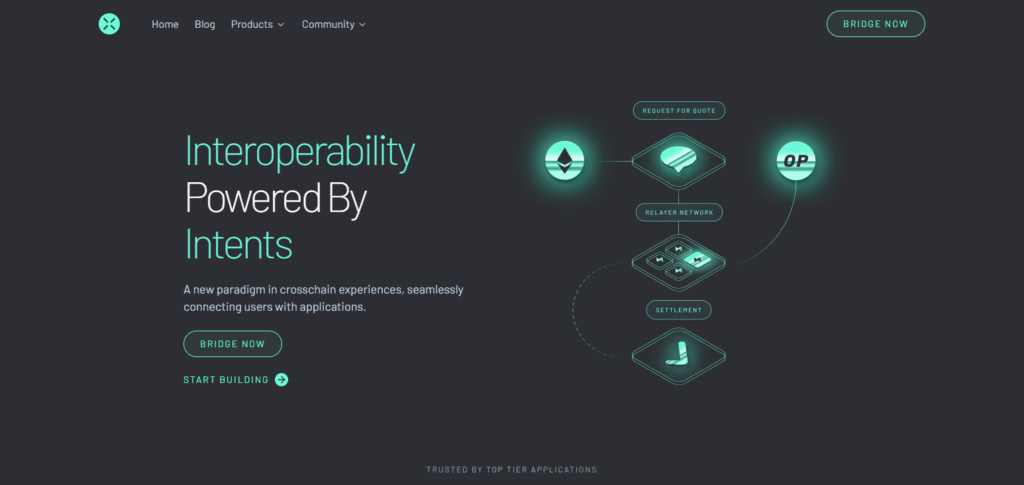
What makes Across unique is that it uses an optimistic transfer mechanism which ensures speed and finality while maintaining security. This serves subscription-based platforms well since they can automate token delivery affordably and without disruption across chains at minimal cost.
Pros & Cons
Pros:
Cons:
7.Stargate Finance
Stargate Finance is the most efficient aggregator of subscription token bridging due to its instant guaranteed finality and true omnichain liquidity. It allows direct transfers of native assets across different blockchains without needing wrapped tokens, making it easier to process subscription payments.
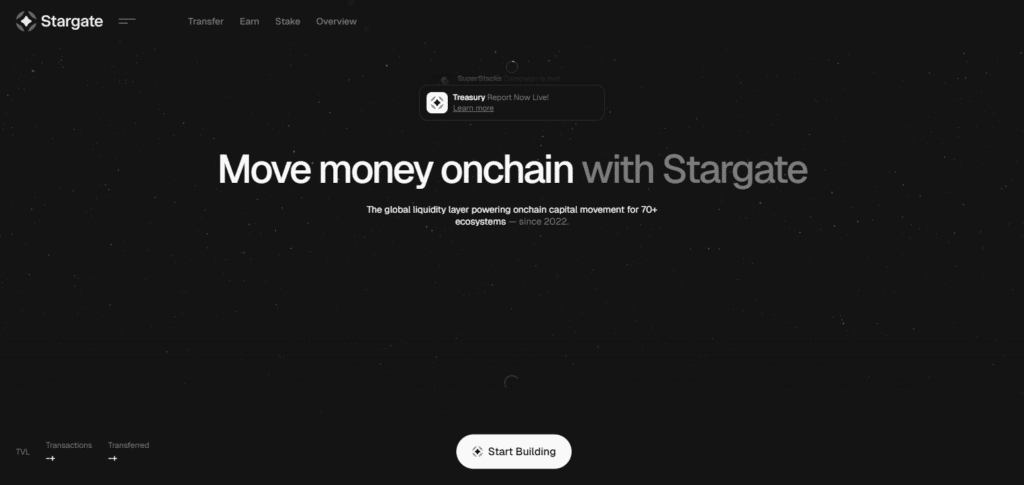
Stargate’s unified liquidity model is unique due to its guarantee of no delays or slippage during cross-chain transactions, ensuring steady delivery of tokens which caters perfectly to subscription services that demand speed and precision.
Pros & Cons
Pros:
Cons:
8.Allbridge
Allbridge is a leading aggregator for bridging subscription tokens due to its deep ecosystem support and easy integration across multiple blockchain platforms.
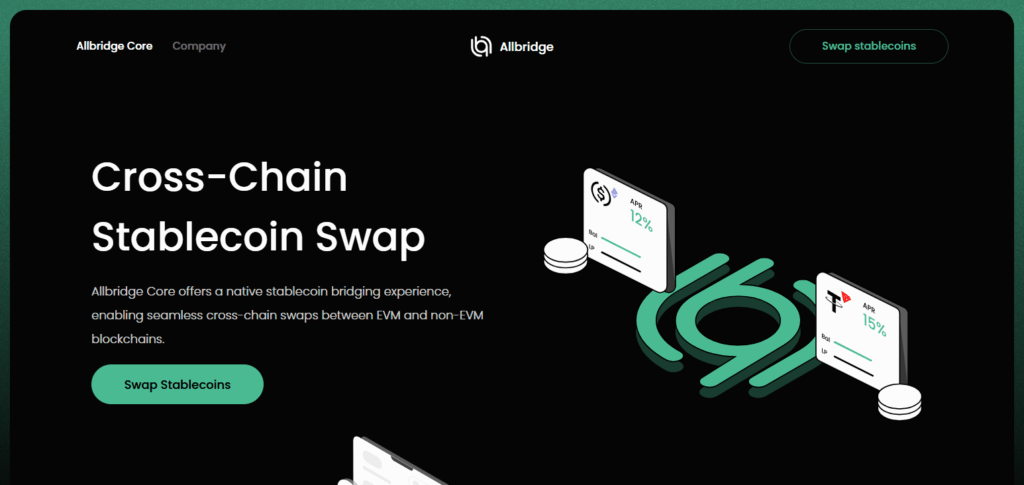
Allbridge allows effortless token transfer between EVM and non-EVM chains, which is critical for subscription-based services operating on multiple platforms. Allbridge stands out for its lightweight, simplicity, and friendly approach from a developer’s perspective.
This framework allows businesses to automate subscription-based token transfer payments requiring minimal effort. Allbridge guarantees automated token transfers across chains with speed, security, and reliability without intricate setups or substantial operational expenditures.
Pros & Cons
Pros:
Cons:
9.Celer cBridge
Celer cBridge remains unparalleled as the finest aggregator for bridging subscription tokens due to its low-cost, high-speed infrastructure optimized for frequent cross-chain transactions.
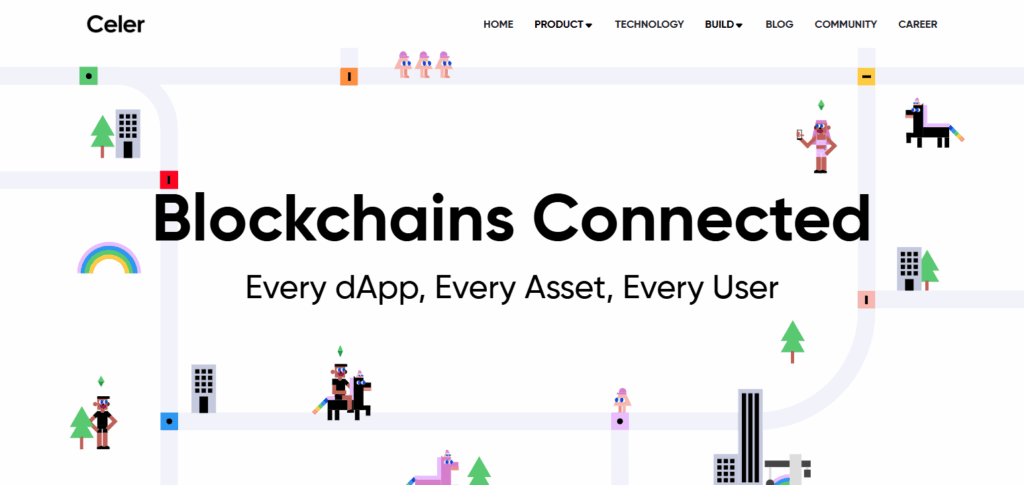
cBridge works with a wide variety of blockchains which makes it perfect for subscription based services needing extensive cross-chain integration. cBridge’s unique advantage comes from its State Guardian Network (SGN), which improves security and provides rapid finality during transfers.
With such dependable infrastructure, subscription-based platforms can rely on automated token dispensation and guarantee timely cross-network payment delivery without service interruptions.
Pros & Cons
Pros:
Cons:
Conclusion
In summary, it is best to consider the specifics of your case—whether it’s prioritizing efficiency, safety, cross-chain capabilities, or ease of use. These criteria determine which aggregator optimally fulfills your requirements. Some offer effective routing and easier interface like 1inch, OpenOcean, and Matcha; others focus on multi-chain functionality and offer dependable transactions like Rango Exchange, Synapse Protocol, and Celer cBridge. For recurring payments that are time-sensitive, Stargate Finance and Across Protocol are ideal with instant finality and low fees. In the end, the powerful subscription token transfer tools across multiple blockchains each have their own unique strengths.
FAQ
What is a subscription token?
A subscription token is a digital asset used for recurring payments or access to services, often automated on blockchain platforms.
Why do I need an aggregator to bridge subscription tokens?
Aggregators help find the most efficient, low-cost, and reliable routes for transferring tokens across blockchains—essential for maintaining consistent and timely subscription payments.
Which aggregator is best for cross-chain subscription payments?
Top choices include 1inch, OpenOcean, Rango Exchange, Synapse Protocol, and Celer cBridge, depending on your needs for speed, cost, and network compatibility.




